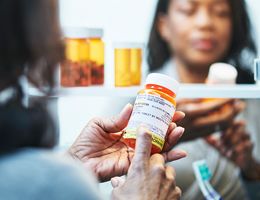C.G.H. Medical Center issued the following announcement on Feb. 13.
If you take immune-suppressing medicines for your arthritis, you might wonder if they put you at higher risk for COVID-19.
According to the Arthritis Foundation, the answer depends on the type of medicine.
DMARDs (disease-modifying antirheumatic drugs) and biologics. People who take these medicines do not appear to be at higher risk for getting COVID-19. They don't seem to have a higher risk of severe illness either.
NSAIDs (nonsteroidal anti-inflammatory drugs). Prescription or over-the-counter medicines like ibuprofen and aspirin don't appear to pose a risk. If you use them for pain relief, it's safe to continue.
Corticosteroids. People who take medicines like prednisone at doses of 10 mg or higher may be at increased risk of being hospitalized with any kind of infection. That includes COVID-19.
But that doesn't mean you should stop taking your medicine. Talk to your doctor about the pros and cons instead. And if you decide to stop, your doctor can help you taper off safely. Stopping too suddenly can put you at risk of an arthritis flare-up.
What if I get COVID-19?
You may need to stop certain medicines for a short time if you:
- Have come into contact with someone with COVID-19.
- Are diagnosed with COVID-19.
- Are having symptoms of COVID-19, such as fever, dry cough or shortness of breath.
What's the best way to avoid COVID-19?
Health experts say that managing arthritis well may actually help lower the risk of COVID-19 infection. So continue to follow your treatment plan. Get a vaccine as soon as you're eligible. And follow safety measures to lower your risk of spreading or catching the virus.
Want to learn more about COVID-19? Visit our Coronavirus health topic center.
Original source can be found here.

Source: C.G.H. Medical Center





 Alerts Sign-up
Alerts Sign-up